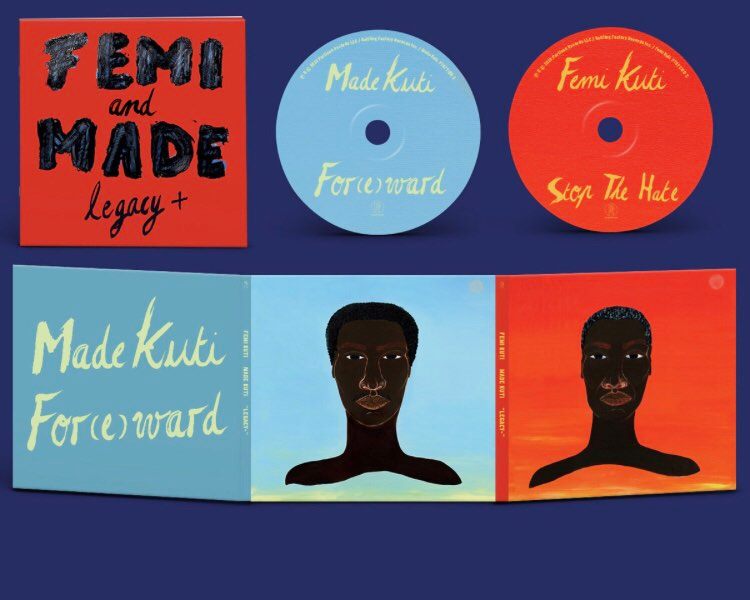Pà Pà Pà is the new title of Fémi Kuti, the son of the famous saxophonist, singer, conductor, political opponent, "god" of afrobeat, Fela Anikulapo Kuti (1938-1997). The track is taken from an upcoming album, Stop the hate.In the same box will be gathered the albums of father Femi and son, Made Kuti, based in London. A musical prodigy, Made Kuti figures the future, which he sketches in his new album For(e)ward.It is no coincidence that the box set, which brings together the two albums, is called Legacy . Legacy talks about the musical filiation between Féla and her son, and between the latter and her grandson Made. Afrobeat runs through the veins of this dynasty like musical DNA. They are a few in the great Kuti family to perpetuate the musical legacy of the Nigerian genius. Each with its own style. Two of his sons, Fémi the eldest of the siblings and Seun, the youngest of the boys, his daughters Yeni and Sola, and the grandson Made, multi-instrumentalist. From a blissful fusion between jazz, funk and African music, Féla invested the music of a revolutionary mission. 
Music is like a weapon among the Kuti
Recognizable, familiar, hypnotic rhythm. Bouillon d'énergies, duet between female choirs and lead vocals. Dialogue between instruments, brass prose, tribal rhythms. Afrobeat invites dance but also reflection. Adulated as a national hero, Fela braved dictatorship, torture and suffered the loss of his mother, defenestrated by soldiers. He is the example of the fighter, whose determination does not bend to oppression. Afro-beat is to music, what Bob Marley is to reggae, what Miles Davis represents to jazz, a monument. It was in 1969, during a tour in the United States, that the artist Fela was born.The meeting with a Black Panther activist, who introduces him to the theses of Malcolm X, transforms him. Back in Nigeria, Féla invents afro-beat. From now on, he sings in pigdin, English of the people, so that his music is accessible to all Africans and the rest of the world.
Fémi Kuti, the heir in dissent
Over time, Fela's concerts increasingly resemble political rallies rather than musical performances. It was at this time that Fémi left his father's band Egypt 80 in which he had been playing the saxophone since the age of 17.Fémi was then twenty-three years old, the extravagance and mysticism of her father dug a disagreement between the two men. Seun has just been born. Fémi sets up her band, taking with him her sisters, Yeni and Sola, singers. At first, Fela disavows him, then sweetens him by inviting him to play regularly in his famous stronghold, the Shrine Club. Féla always wanted one of her sons to become the heir of her music, Fémi and/or Seun. Pà Pà Pà marks the apogee of a style, which at the dawn of this eleventh album, shows that Fémi brilliantly masters all the fundamentals of afro-beat. The first images expose Lagos, its congested arteries, its youth, the famous Fela club Africa Shrine. Club, which Fémi has rebuilt and in which he performs every night. The artist denounces the ineffectiveness of power in fulfilling its role. He rails against a failing government to provide continuous electricity, decent roads, drinking water, a good health system… A title that announces an anthology album, see you on February 5, 2021. https://www.youtube.com/watch?v=aeOklefYRW0&list=RDaeOklefYRW0&start_radio=1



































![[Live Report] Rock En Seine 2024 : 20 ans et toujours aussi passionnés !](https://www.justfocus.fr/wp-content/uploads/2024/11/RES24_JOUR01_LANA-DEL-REY_LOUIS-COMAR-12.jpg)





